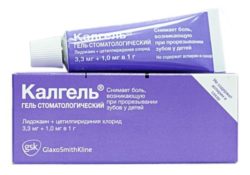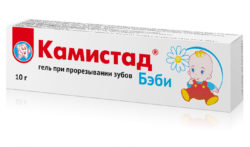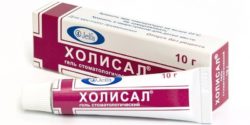A baby at the age of four months is not yet able to communicate what worries him, where he hurts, what factors cause discomfort. Usually, the first milk teeth begin to cut at six months, but it is not uncommon for middle incisors to appear in four-month-old babies. It is very important to distinguish the signs of teething in order to help the baby to endure this period as easily as possible.
On a note! Early teething is not considered a pathology. The age of 4-7 months is considered the norm for the appearance of the first milk incisors.
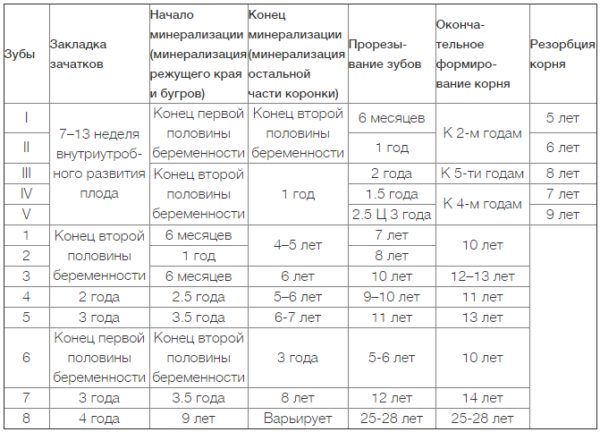
Signs of teething
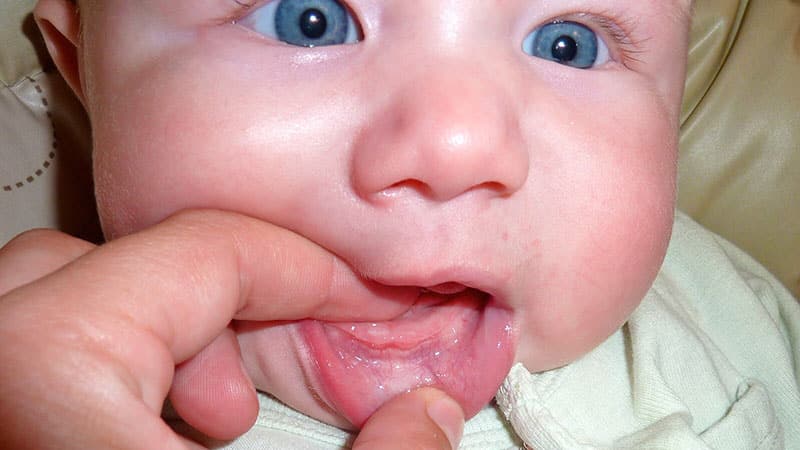
Worry, cry
The first sign that is difficult to ignore is child anxiety... The kid is naughty and often cries, may refuse food, water, bottles. Behavior is often observed when the baby picks up the breast, begins to suck, but immediately releases it and begins to cry. This is due to the fact that the gums during the teething period are very sensitive and painful, the baby is disturbed by unpleasant sensations, but he does not know how to cope with them.

It is not uncommon for a child to bite the breast with his gums while feeding. The kid just wants to get rid of the itching, for which he clenches his jaw when any objects fall on the gums.
It is worth sounding the alarm if the child does not eat for two days and more. And one or two missed meals a day are not a cause for concern.
Drooling
The second sign is increased salivation... Pay attention to the child, if he pulls everything into his mouth, the saliva is liquid and abundant, the first tooth may appear soon. However, this symptom does not always accompany teething. It happens that the baby's drool is like a river, but there are no teeth. Therefore, it is better to focus on other signs or their combination.
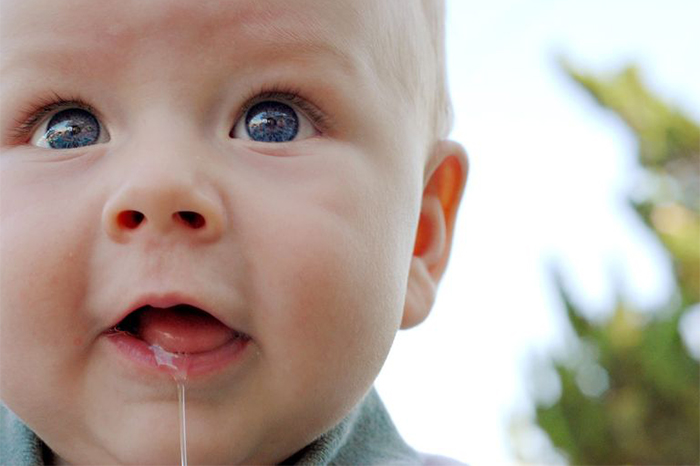
Increased salivation can cause irritation on the chin and around the lips.
Diarrhea
The third sign is upset stool... Pediatricians recommend introducing the first complementary food at 4 months. And if the period of the introduction of complementary foods coincides with teething, the first thought of the parents is food poisoning of the child. Profuse diarrhea in children during teething is also very similar to intestinal upset caused by harmful infections. It is worth panicking only if diarrhea occurs more than three times a day and longer than 3-7 days in a row.
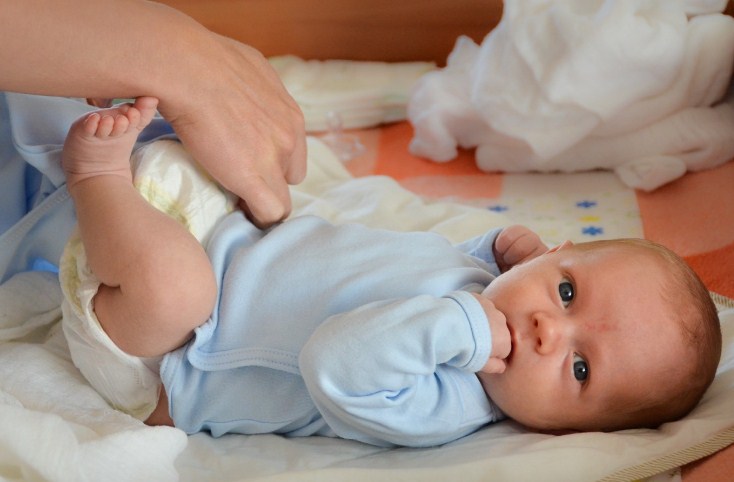
On a note! Pay attention to the baby's feces. If it contains traces of blood, it is important to see a doctor immediately.
The reason for diarrhea in infants associated with teething is a decrease in the level of the immune system. The gums begin to itch, and to relieve the itching, the baby pulls his own fingers, clothes, mother's hair, toys into his mouth. On the surface of all these objects, there are invariably microbes that penetrate the child's body, develop, as a result, dysfunction of the entire gastrointestinal tract is observed. Diarrhea is an indicator that the baby's immune system has simply failed to cope with the infection in the intestines. But the body quickly adapts, and the diarrhea disappears without a trace.
You can distinguish teething from an intestinal infection as follows:
- calm down the child, create a cozy atmosphere for him;
- place the baby on a changing table or other hard surface;
- Feel the baby's belly and observe the reaction. If the baby is calm while feeling, there is no reason for concern. If the belly is hard, and the slightest touch causes the child to become hysterical, you should immediately seek help from honey. institution.
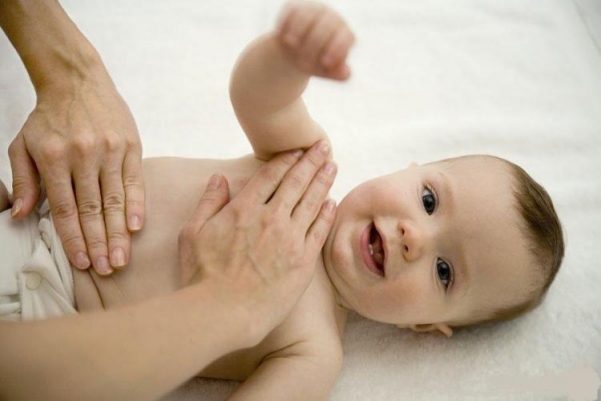
On a note! Diarrhea may be accompanied by profuse regurgitation or vomiting. This is normal when erupting.
Sensitive and itchy gums
The fourth sign is swelling of the gums, redness, sensitivity, itching. If you notice that your 4-month-old is teething, try to calm yourself down initially. You will in no way influence the course of teething, their sequence and speed, but you can provide the baby with such important moral support these days. There is no need to climb into the child's mouth every minute, try to tap the gums with steel objects, you will only bring in more germs, frighten the child, and his stress state will worsen.

Very important! If the first tooth has already come out, and then the second erupts, do not try to relieve the itching of the gums by offering the child pieces of cookies, crackers, crusts of bread, any pastry, apples or carrots. An accidentally bitten off piece of food can enter the baby's respiratory tract, which will entail disastrous consequences.
You may notice small bumps on the gums or bruises. They will pass by themselves, outside interference is unnecessary.
Fever, cough
Table. How to find out if the kid has caught ARVI or is just teething?
| Signs | Teething | ARVI, infectious diseases |
|---|---|---|
| Increased body temperature | An increase to 37-38 ° C is considered the norm, it lasts no more than four days | Elevated body temperature of 37-40 ° C and above lasts for more than four days |
| Heat | Absent | Usually present |
| Weakness | Absent | Frequently observed |
| Cough | Rare, appears due to the fact that the baby chokes on a large amount of saliva, not having time to swallow it | The cough is systematic, frequent, hoarseness may be observed |
| Runny nose | It may be slight if the baby's saliva enters the nasopharynx. Runny nose no more than three days | Present abundant, long time |
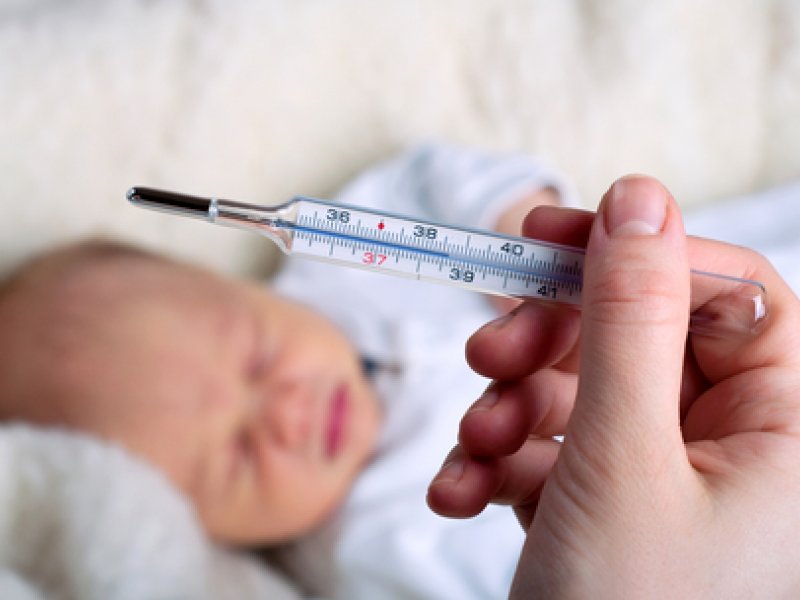
Note! If a child constantly rubs his face and chin against the surface on which he is lying, this could be a sign of ear inflammation. It is necessary to see an otolaryngologist.
How can I help the baby?
Temperature increase
For high temperatures, use one of the following:
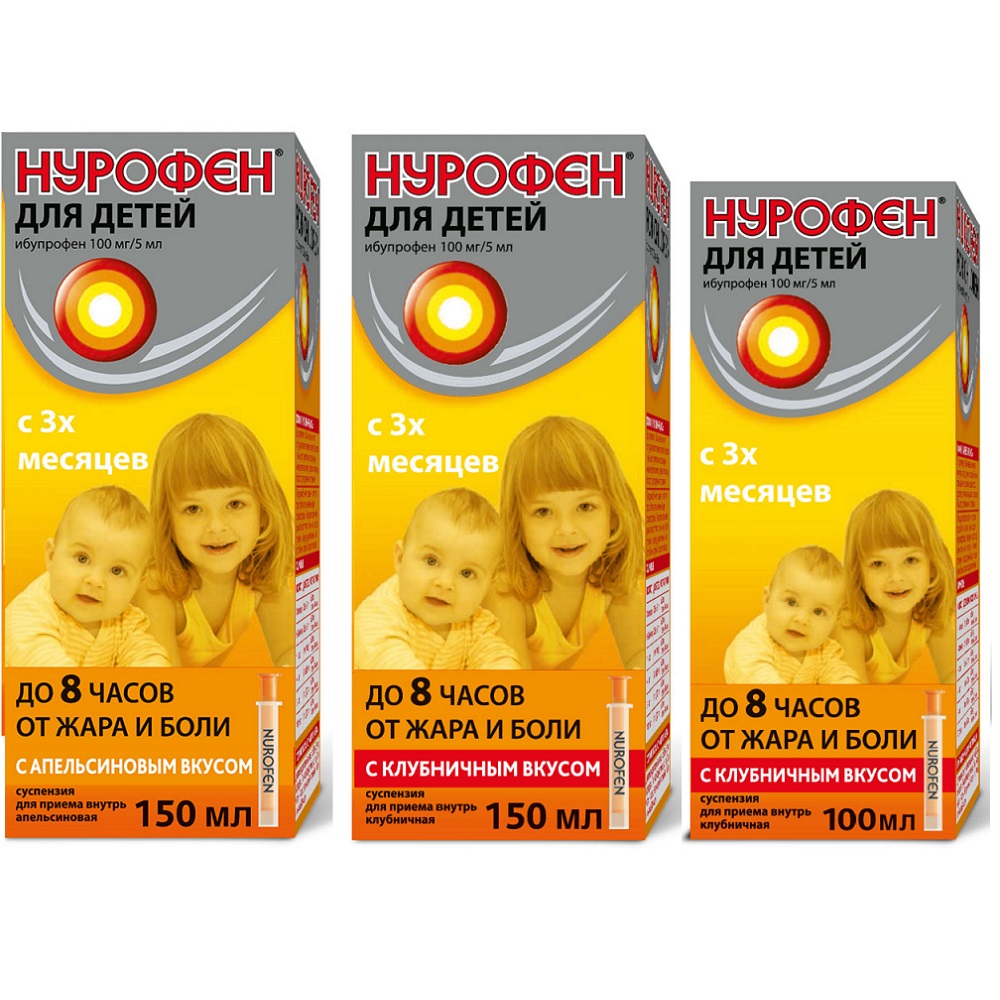
Paracetamol-based preparations assigned depending on the weight of the child. The maximum daily dose is 60 mg per 1 kg of body weight. It is recommended to give an antipyretic 1 hour after a meal. A single dose of the drug should not exceed 15 mg per 1 kg of body weight. Antipyretic drugs can be given no more than four times a day, with a break between doses of at least four hours.
If the child is allergic to the dyes contained in suspensions and syrups, you can give a paracetamol tablet crushed into powder and dissolved in water. The dosage is calculated according to the weight of the child. One tablet contains 200 mg of active ingredient.
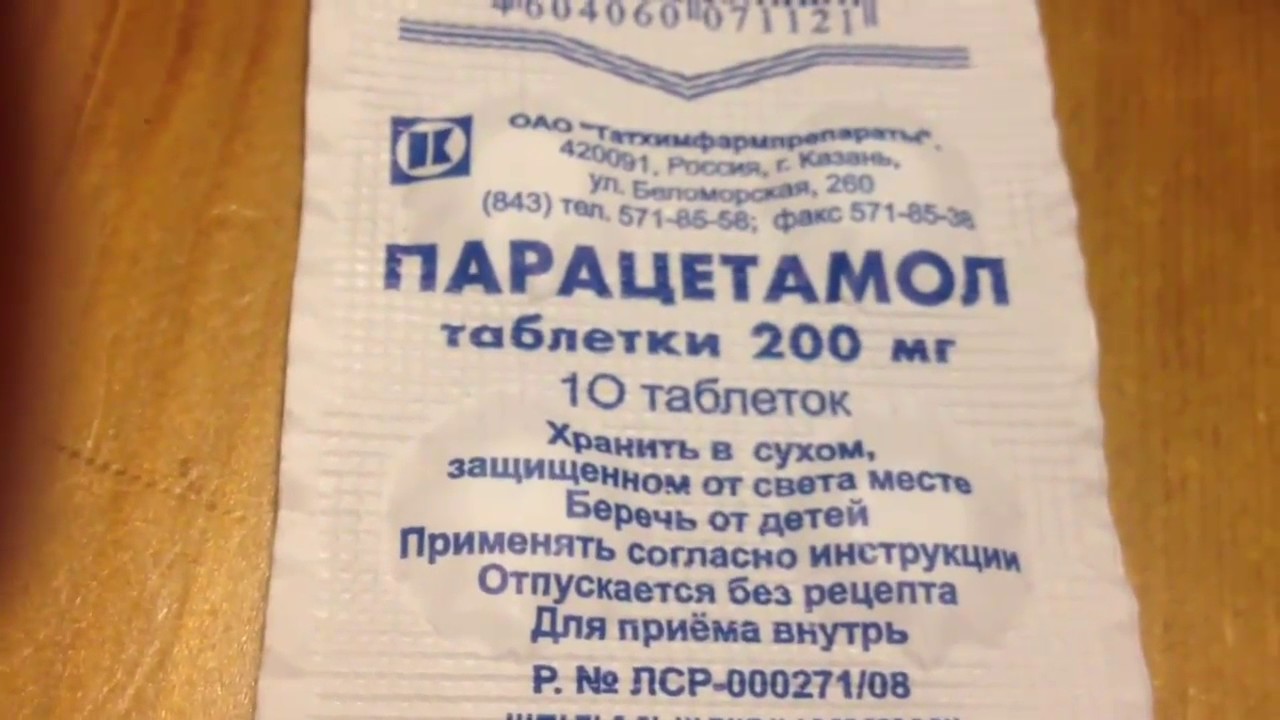
Rectal suppositories are placed only after the baby has emptied the intestines. Antipyretic drugs are not used for more than three days. Consultation of a pediatrician is required.
Ibuprofen the suspension can be given to the child with a break of 6 to 8 hours, no more than three times a day. The maximum single dose of the drug is 10 mg per 1 kg of the child's weight. The maximum daily dose is 30 mg per 1 kg of body weight, respectively.
If a child develops side effects from taking the medication, it is necessary to cancel the drug, inform the pediatrician about the reaction of the body.
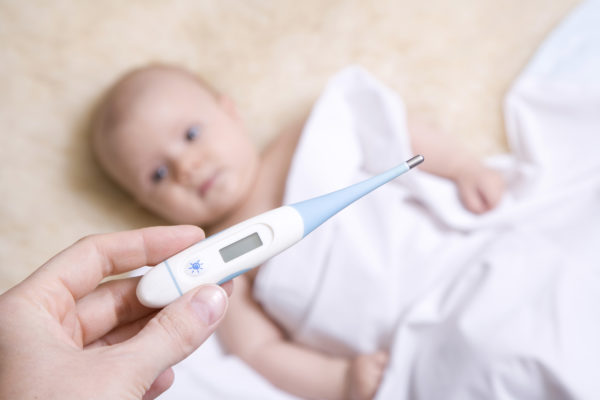
Important! It is advisable to use antipyretic drugs after consulting a pediatrician. Carefully study the annotations for the prescribed drugs.
Runny nose
For a cold, children are prescribed the following drugs:
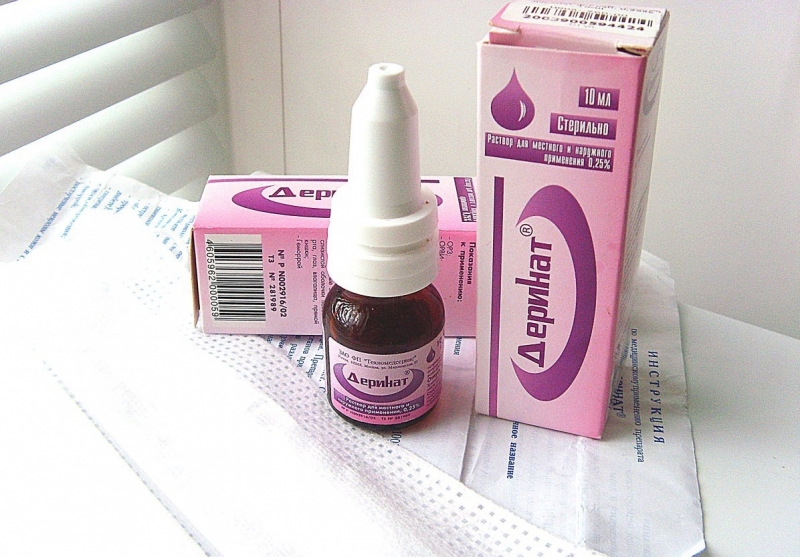
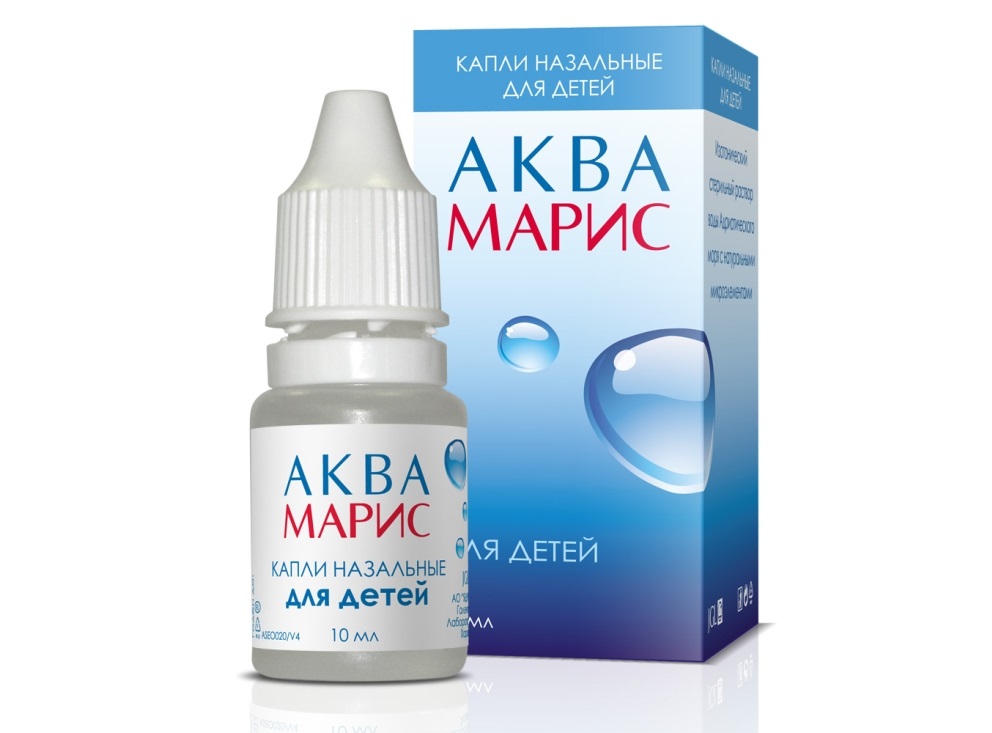
Do not use nose drops for more than five days in a row. The drug is injected one drop into each nostril three times a day.
Gum pain
Table. Popular anesthetic gels.
| Gel | Description |
|---|---|
| A strip of gel 7 mm long is applied to a clean finger, gently rubbed into the child's gums. No more than 6 applications per day. The interval between applications is at least 20 minutes. |
| The amount of gel for application is equal to a pea. The gel is rubbed into the gums with a clean finger or a cotton swab. Cannot be used more than three times a day. |
| Before applying the gel, the gums are dried with a cotton or gauze swab. A small amount of the product is rubbed into the gums no more than three times a day. |
To make teething easier, give your baby special toys with liquid inside. Such teethers must be rinsed, rinsed with boiling water, then held in the freezer for a while. The effect of cold on the baby's gums will reduce pain and irritation, and the pimples on the toy will gently massage the gums.
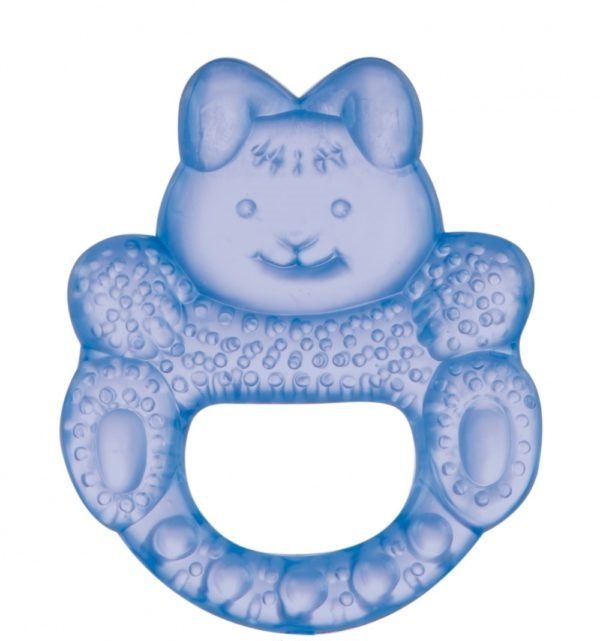
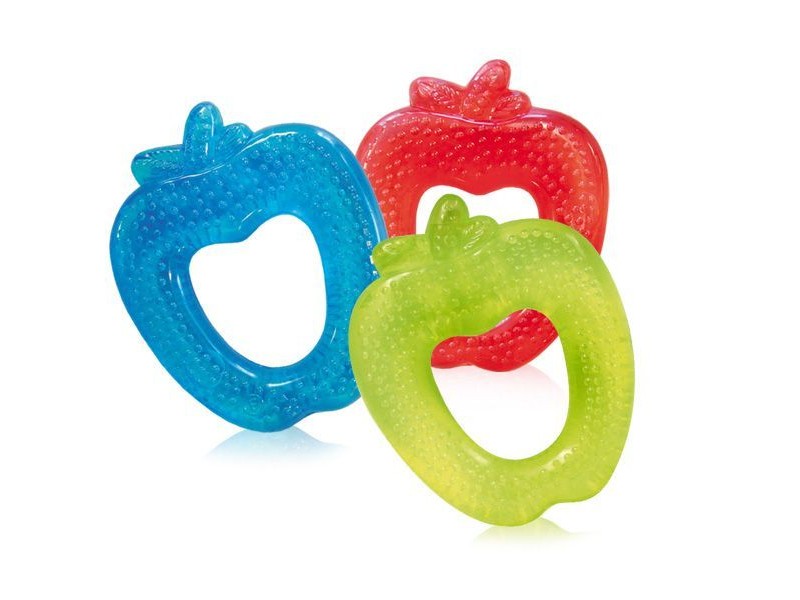
If a 4-month-old baby has teething, do not wean her. Breastfeed when your baby requires it. The breastfeeding process will help the baby to survive the teething of the first teeth much easier.

